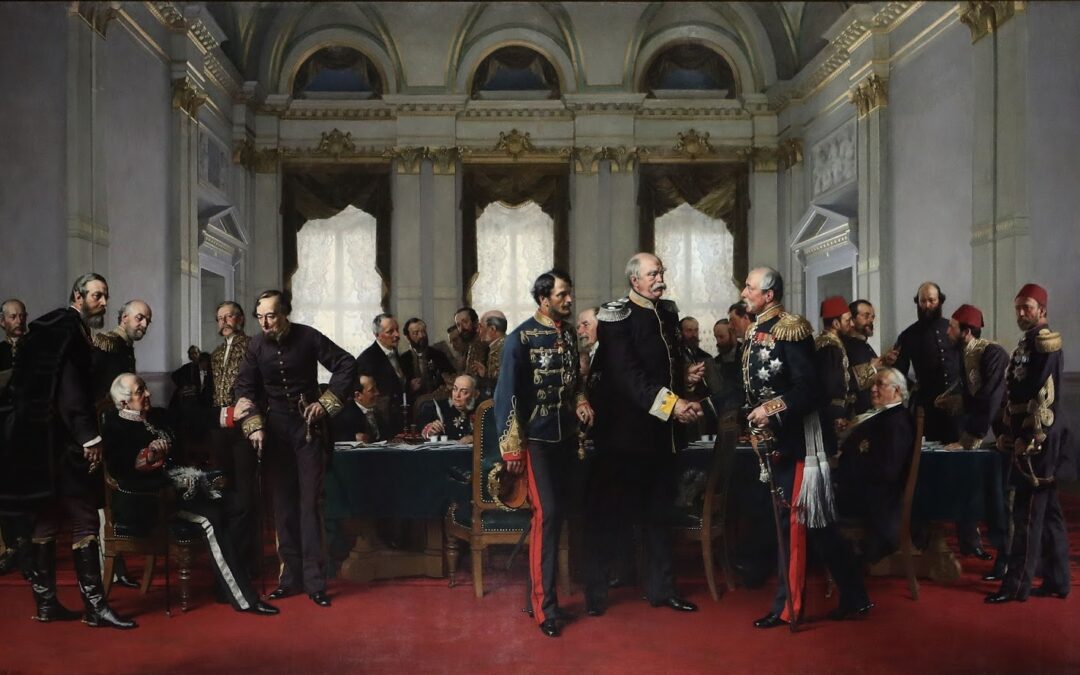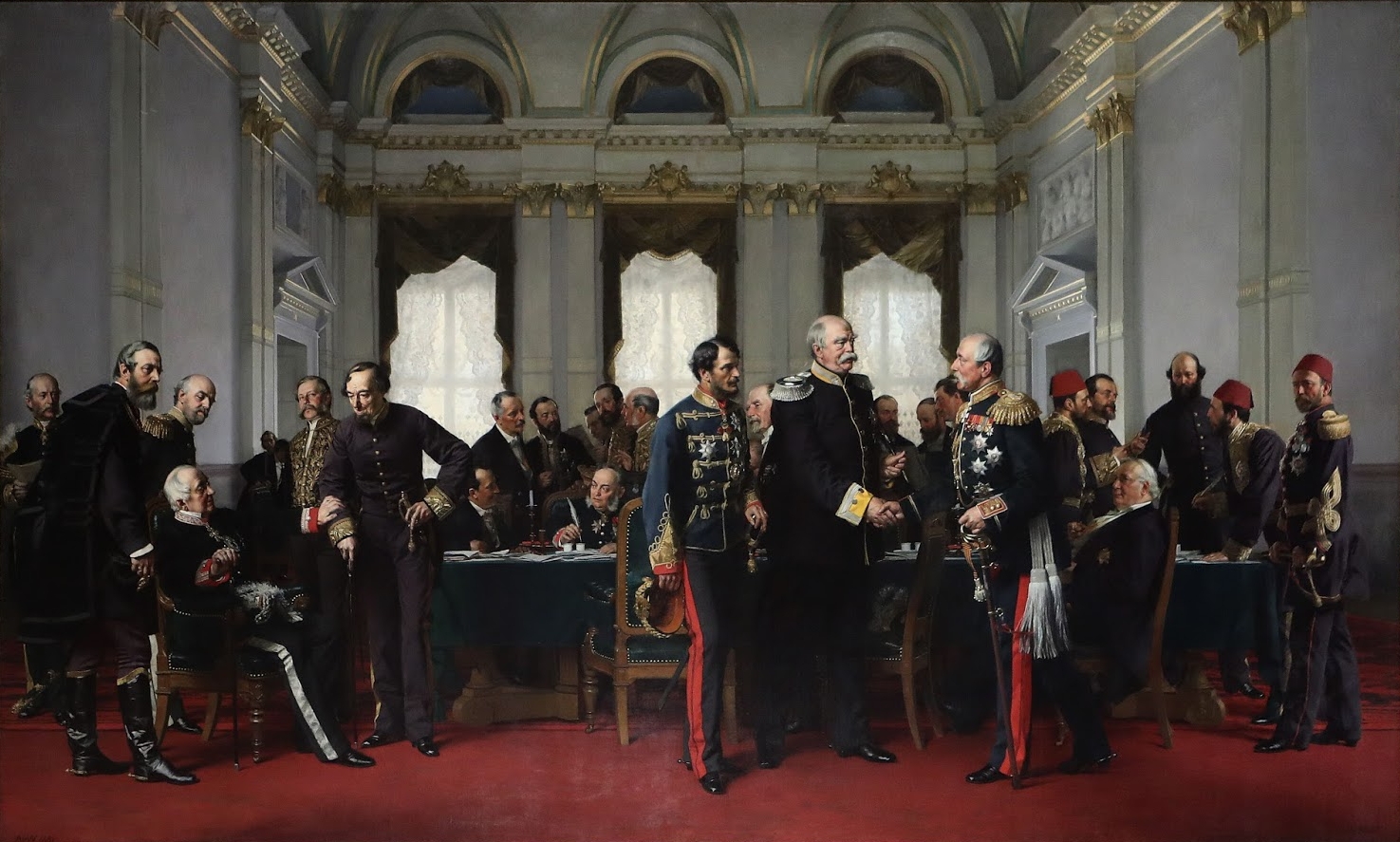OUR BLOG
Great diplomatic victories: the Congress of Berlin in 1878.
At the Conference of the Great Powers held in Berlin, presided over by German Chancellor Bismarck, Serbia gained territorial expansion and, more importantly, international recognition, thereby joining the ranks of fully sovereign European states. Although Belgrade did not have official representatives at the Congress, diplomatic efforts were pursued until the very end.
Much credit for the successful outcome of this political adventure in Berlin goes to the agile, pragmatic, and persistent Serbian diplomat Jovan Ristić, who, under the orders of Prince Milan Obrenović and despite limited room for maneuver, diligently led Serbia’s foreign policy efforts.
The fulfillment of a great dream
The dream of freedom, independence, and statehood, envisioned by the rebels in Orašac on a cold February night in 1804 as they rose up in revolt, was finally realized seven decades later. With the agreement of the Great Powers at the Berlin Congress in the summer of 1878, the Principality of Serbia received international recognition of its independence, thereby formally joining the circle of European states. This act successfully unified the legacy of the First and Second Serbian Uprisings, the Ottoman firmans, and the Sretenje Constitution, embedding them all into the foundation of a sovereign Serbian state. For this reason, the Berlin Congress—despite the fact that Serbia did not participate directly and in spite of the controversies that accompanied it—is regarded today as one of the cornerstones of Serbian national history.
The Berlin Congress ends the Eastern Crisis
The decisions made at the Berlin Congress brought an end to the so-called Great Eastern Crisis, a significant chapter in the long-term resolution of the Eastern Question. The renowned Serbian historian Milorad Ekmečić succinctly defined this period of European history as a struggle among the Great Powers over the division of Ottoman territorial heritage, which they had been accumulating since the 16th century.
Serbia without participant status
The major conference was convened at the initiative of German Chancellor Otto von Bismarck, who also proposed Berlin as the meeting venue. The proposal was immediately accepted by Germany, Great Britain, and Italy. France agreed after receiving certain guarantees, which together compelled Russia to join as well.
The interests of the seven Great Powers were represented by 90 authorized delegates, and the congress was presided over by the head of the host delegation, Chancellor Bismarck. Negotiations also involved teams of international law experts, seasoned diplomats, military consultants, translators, as well as geographers and cartographers, who proposed solutions for the new borders of Balkan states.
Serbia, still formally a vassal state, did not have participant status at the congress, was not invited, and its representatives were not allowed to attend the deliberations of the Great Powers. Nevertheless, the Berlin Conference can be considered a diplomatic victory for Serbia, as Belgrade, working discreetly behind the scenes, made a series of moves that led to a favorable outcome.
The triumph of Jovan Ristić, a pragmatic and persistent Serbian diplomat
Much credit for the successful outcome of Serbia’s political adventure in Berlin goes to the agile, pragmatic, and persistent Serbian diplomat Jovan Ristić. Through Ristić, Belgrade defended its interests with a range of low-intensity diplomatic activities on the sidelines of the conference, as well as in the capitals of the states represented at the congress.
Ristić, through his connections, gathered intelligence on the plans of the Great Powers and lobbied key state envoys before official sessions, thus influencing their stance on Serbian interests. This is why the support of Austria-Hungary, toward which Serbia’s foreign policy had begun to shift, was particularly important. As a powerful European force, its delegates attended all key meetings and played a decisive role in shaping final decisions.
Controversial territorial issues were largely resolved in Serbia’s favor. Thanks to the firm stance of Habsburg diplomats, Serbia secured the towns of Vranje—desired by the British for the Ottomans—and Pirot, which the Russians sought for the Bulgarians. Serbia expanded to include four new districts: Niš, Pirot, Toplica, and Vranje. Of even greater significance was the achievement of full independence and international recognition—a seal of freedom dreamed of for generations.
More details about the Berlin Congress, as well as numerous topics related to diplomacy, culture, and Serbia’s rich historical heritage, can be found in the DIPOS magazine.









 2018
2018